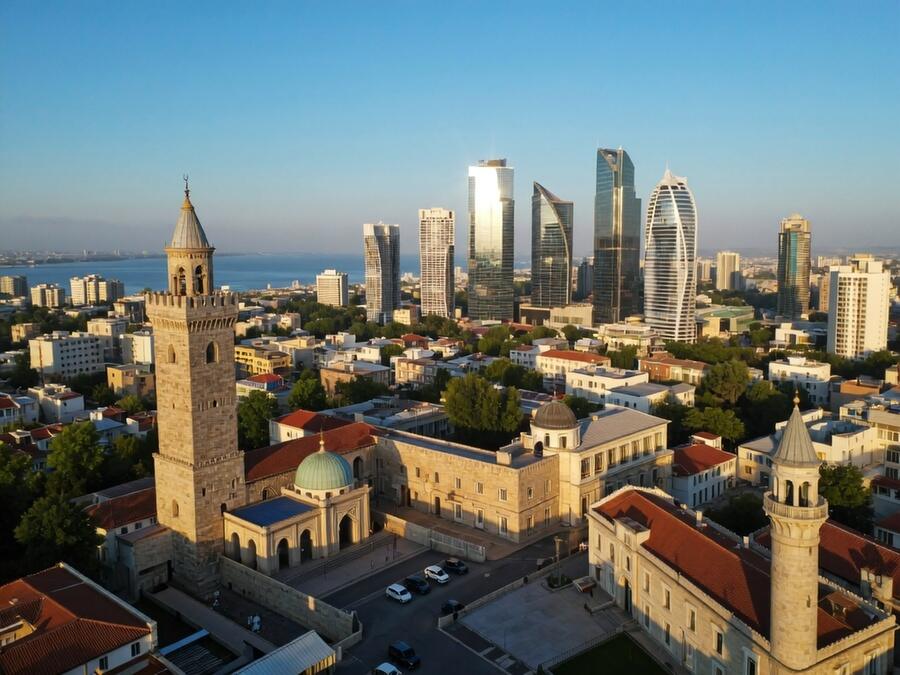Copyright travelandtourworld

Azerbaijan Joins Cuba, France, China, Indonesia, United Kingdom, Tajikistan And More As Australia Issues New Travel Advisory Amid Increased Global Uncertainty Published on November 4, 2025 In the midst of increasing global unpredictability, Australia has released a new travel advisory, adding a number of nations to the list of places where travellers should exercise extra caution. Azerbaijan has joined the list of countries that have been flagged for specific safety concerns, including political instability, civil unrest, natural disasters, terrorism threats, and Cuba, France, China, Indonesia, and the United Kingdom. Australia updated its advisory because of the rise in risks that could potentially impact travellers in these countries. In light of the increasingly uncertain global environment, Australians are advised to remain informed and be especially watchful when travelling to these places in order to protect themselves. Australia has issued a comprehensive new travel advisory, urging citizens to exercise a high degree of caution when visiting various countries worldwide due to growing global safety risks. The countries listed include Azerbaijan, Cuba, France, China, Indonesia, the United Kingdom, and Tajikistan, all of which are facing unique challenges and risks that travelers must be aware of. From terrorism to civil unrest and natural disasters, the Australian Department of Foreign Affairs and Trade (DFAT) has updated its travel advice to help Australians make informed decisions before embarking on international travel. Azerbaijan: Exercise a High Degree of Caution Amid Security Risks Azerbaijan has seen an increase in security concerns, particularly in relation to ongoing geopolitical tensions. The Australian travel advisory for Azerbaijan advises travelers to exercise a high degree of caution due to the ongoing threat of terrorism. While violent crime is relatively rare, there is an elevated risk in certain areas, particularly in tourist spots and crowded public places. Travelers are warned to avoid the Armenia-Azerbaijan border regions, which are prone to armed clashes. The Nagorno-Karabakh region and its surrounding areas pose a particular risk due to the presence of unmarked landmines. Infrastructure is limited in these regions, and professional security advice is strongly recommended before venturing into these areas. As the region remains volatile, travelers should stay updated on official warnings and avoid large gatherings or protests that may turn violent. Cuba: Travel Caution Amid Infrastructure Damage and Crime Risks Cuba, known for its vibrant culture and natural beauty, is facing significant challenges following the devastating impact of Hurricane Melissa. The cyclone caused widespread infrastructure damage, severely disrupting essential services such as transportation, electricity, water, and food supplies. The Australian travel advisory urges travelers to exercise a high degree of caution due to these disruptions. The country is experiencing a severe shortage of fuel, food, and drinking water, which may affect the availability of essential services. In addition to infrastructure challenges, Cuba also faces a rise in violent crime, including robbery and assault. While petty theft is common in tourist areas, more serious crimes should also be taken into consideration. Given these concerns, travelers are advised to check with airlines or tour operators for updates on travel disruptions and to monitor local media for information on the ongoing recovery efforts. Visitors should also follow local authorities’ instructions to ensure their safety. France: Heightened Terrorism Threat and Civil Unrest France continues to face a heightened terrorism threat, with the Australian government advising travelers to exercise a high degree of caution when visiting the country. France’s national terrorism alert is currently at the highest level, which means that the threat of an attack is significant. Terrorists have targeted public spaces in the past, including transport hubs, tourist attractions, shopping malls, and cultural events. Travelers should be particularly cautious when visiting places that attract large crowds, such as airports, train stations, and public events. The country also experiences frequent strikes and protests, which can escalate into violent clashes with police. Travelers should avoid participating in protests or going near areas with significant police activity to minimize the risk of being caught up in potentially dangerous situations. While serious crime is not widespread, pickpocketing and theft are common in major cities, especially in tourist areas. Visitors should be vigilant about securing their personal belongings and be cautious on public transport, where thieves often target unsuspecting travelers. China: Risk of Arbitrary Detention and Natural Disasters Travelers heading to China are advised to exercise a high degree of caution, especially in regions such as Tibet and Xinjiang, where the security situation remains tense. The country has a history of detaining foreigners under the broad scope of its national security laws, which could lead to arbitrary detention, exit bans, or other forms of legal action. Additionally, typhoons are a concern along China’s southern and eastern coasts, particularly between May and November. These storms can change direction with little warning, and travelers should be prepared to follow evacuation plans provided by their accommodation or cruise ship. Petty crime, including scams, is a notable issue in crowded tourist areas and public transport, where criminals may target travelers. Travelers should be aware of potential risks and report any scams to the nearest police station. Armed attacks are also a risk in some remote border regions, and extra caution is recommended when traveling in those areas. Indonesia: Flooding, Terrorism, and Drink Spiking Risks Indonesia’s travel advisory urges visitors to exercise a high degree of caution, particularly in areas that have been hit by flooding, such as Bali and Jakarta. Heavy rains have caused significant disruptions to transportation and other essential services. In flooded areas, walking or driving is dangerous, and travelers should stay informed through local authorities about evacuation plans and safety measures. The risk of terrorism remains high in Indonesia, with popular tourist spots and government buildings potentially being targets. The Indonesian government continues to monitor threats in various regions, so travelers should stay updated on the latest information. Another issue of concern is the rising number of cases of drink spiking, particularly in places like Bali and Lombok. Methanol poisoning from improperly prepared alcoholic beverages has led to health emergencies, so travelers are advised to be cautious about consuming drinks from untrusted sources. Local laws, including cultural norms in Bali, should be respected to avoid legal complications. United Kingdom: Terrorism Threat and Petty Crime The United Kingdom remains on high alert, with the terrorism threat level classified as substantial. This means an attack is likely, and travelers are advised to exercise a high degree of caution while in the UK. The threat comes from various sources, including Islamic extremism and extreme right-wing groups. High-profile public spaces, including tourist attractions, transportation hubs, and sports events, are at particular risk. Travelers should also be aware of frequent protests, which can turn violent. It’s best to avoid large crowds and areas where demonstrations are taking place. Serious crime, including robberies and muggings, also occurs, particularly in large cities like London. Pickpocketing is common, so visitors should be cautious about their personal belongings, especially in crowded areas. Tajikistan: Risk of Terrorism and Civil Unrest The travel advisory for Tajikistan advises Australians to exercise a high degree of caution due to the threat of terrorism and civil unrest. Travelers are strongly discouraged from visiting the border areas with Afghanistan, where the security situation is volatile and poses a high risk. There have been recent military clashes along the border with Kyrgyzstan, further adding to the instability. Tajikistan also faces internal political violence, especially in the Gorno-Badakhshan Autonomous Oblast (GBAO), which has been a hotspot for protests and unrest. Travelers should avoid all non-essential travel to this region and take extra precautions when in the country’s border areas. Conclusion: Travelers Must Stay Informed and Be Prepared The travel advisories issued by Australia highlight the growing global safety risks that travelers may face in various countries. From terrorism and civil unrest to natural disasters and petty crime, each country on the list presents unique challenges that require travelers to be vigilant and well-prepared. Before traveling to any of the aforementioned countries, Australians are advised to stay updated on the latest travel information from the Australian Department of Foreign Affairs and Trade (DFAT) and to follow local authorities’ instructions. By exercising caution and being aware of potential risks, travelers can enjoy safer journeys and avoid potentially dangerous situations. Australia has released a new travel advisory, warning its citizens to be especially cautious when travelling to countries such as Azerbaijan, Cuba, France, China, Indonesia, the United Kingdom, and Tajikistan, in light of the increasing instability in the world. This revised safety advice is necessary because of the rising risks in these countries, such as terrorism, civil unrest, natural disasters, and political tensions. As global security concerns continue to evolve, it is important for all travelers to remain aware and take necessary precautions to ensure their safety and well-being.



